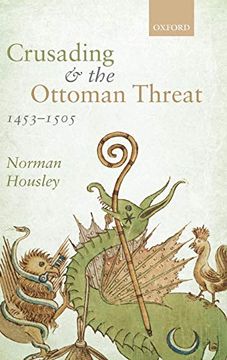Share
Crusading and the Ottoman Threat, 1453-1505
Norman Housley (Author)
·
Oxford University Press
· Hardcover
Crusading and the Ottoman Threat, 1453-1505 - Norman Housley
Choose the list to add your product or create one New List
✓ Product added successfully to the Wishlist.
Go to My Wishlists
Origin: U.S.A.
(Import costs included in the price)
It will be shipped from our warehouse between
Tuesday, July 09 and
Friday, July 19.
You will receive it anywhere in United Kingdom between 1 and 3 business days after shipment.
Synopsis "Crusading and the Ottoman Threat, 1453-1505"
The fifty years that followed Mehmed II's capture of Constantinople in 1453 witnessed a substantial attempt to revive the crusade as the principal military mechanism for defending Christian Europe against the advance of the Ottoman Turks. Norman Housley's study investigates the origins, character, and significance of this ambitious programme. He locates it against the broad background of crusading history, and assesses the extent to which protagonists and lobbyists for a crusade managed to refashion crusading to meet the Turkish threat, combining traditional practices with new outlooks and techniques. He pays particular attention to diplomatic exchanges and political decision-making, military organization, communication, and devotional behaviour.Housley demonstrates the impressive scale of the effort that was made to create a crusading response to the Turks. Crusaders were recruited in very large numbers between 1454 and 1464, and in 1501-3 substantial sums of money were raised through the vigorous preaching of indulgences in the Holy Roman Empire. But while the crusading cause was recognized as important and urgent, the mobilization of resources was prejudiced by the volatile nature of international politics, and by the weakness of the Renaissance papacy. Even when frontline states such as Hungary and Venice welcomed crusading contributions to their conflicts with the Ottomans, building robust structures of cooperation proved to be beyond the ability of contemporaries. As the Middle Ages drew to a close, the paradox of crusade was that its promotion and finance impacted on the lives of Catholics more than its instruments affected the struggle for domination of the Mediterranean Sea and south-eastern Europe.
- 0% (0)
- 0% (0)
- 0% (0)
- 0% (0)
- 0% (0)
All books in our catalog are Original.
The book is written in English.
The binding of this edition is Hardcover.
✓ Producto agregado correctamente al carro, Ir a Pagar.

